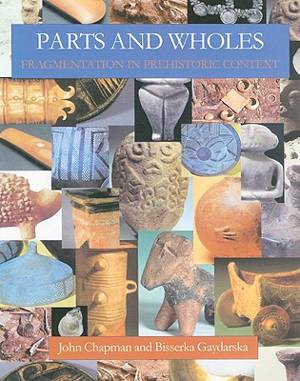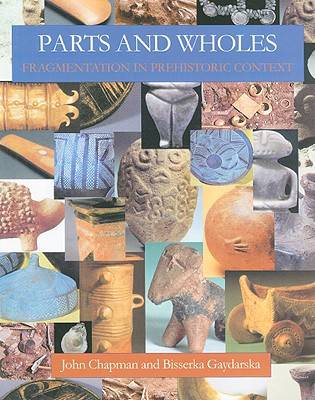
- Afhalen na 1 uur in een winkel met voorraad
- Gratis thuislevering in België vanaf € 30
- Ruim aanbod met 7 miljoen producten
- Afhalen na 1 uur in een winkel met voorraad
- Gratis thuislevering in België vanaf € 30
- Ruim aanbod met 7 miljoen producten
Zoeken
Parts and Wholes
Fragmentation in Prehistoric Context
John Chapman, Bisserka Gaydarska
Paperback | Engels
€ 66,95
+ 133 punten
Omschrijving
This is a highly original work that attempts to take fragmentation studies further towards integrating archaeology, social anthropology and material culture, and concerns the relationship between whole objects and broken ones. The authors construct a new fragmentation premise and examine its implications for the Balkans in the Neolithic, using case studies taken from the Balkans and Greece. Key issues covered include a biographical method of considering objects and their relation to the creation of personhood; methodological issues of site formation; a questioning of the assumption that excavated data is a more or less accurate reflection of the operation of past social practices; and a discussion of what happened to pieces missing from an assemblage. It concludes by seeking to put Balkan prehistory back together again by looking at variations in social practices and the construction of personhood at different socio-spatial levels.
Specificaties
Betrokkenen
- Auteur(s):
- Uitgeverij:
Inhoud
- Aantal bladzijden:
- 233
- Taal:
- Engels
Eigenschappen
- Productcode (EAN):
- 9781842172223
- Verschijningsdatum:
- 20/11/2006
- Uitvoering:
- Paperback
- Formaat:
- Trade paperback (VS)
- Afmetingen:
- 216 mm x 276 mm
- Gewicht:
- 948 g

Alleen bij Standaard Boekhandel
+ 133 punten op je klantenkaart van Standaard Boekhandel
Beoordelingen
We publiceren alleen reviews die voldoen aan de voorwaarden voor reviews. Bekijk onze voorwaarden voor reviews.











